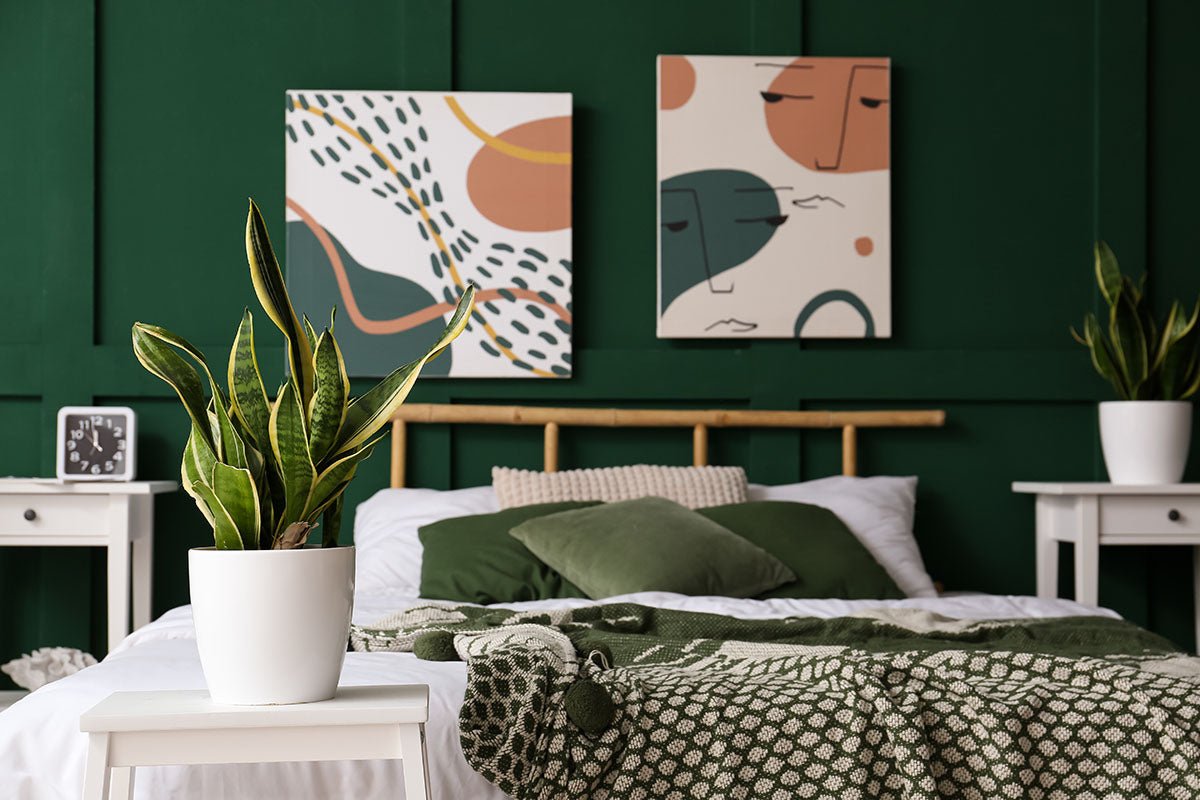Creating a peaceful and serene environment in the bedroom is essential for a good night's sleep. While there are various ways to achieve this, one effective method is by incorporating plants into your bedroom decor. Plants not only add a touch of natural beauty but also offer numerous benefits that can improve your sleep quality and overall well-being. In this article, we will explore five plants that are perfect for the bedroom and can help transform it into a relaxing oasis.
Table of Contents
- The Importance of Plants in the Bedroom
- Plant Selection Criteria
- 1. Lavender
- 2. Aloe Vera
- 3. Snake Plant (Sansevieria)
- 4. Peace Lily
- 5. Spider Plant
- Caring for Bedroom Plants
- Benefits of Bedroom Plants
- Conclusion
- FAQs
The Importance of Plants in the Bedroom
Plants have been used for centuries to create a soothing and calming atmosphere, and their benefits extend beyond aesthetics. When it comes to the bedroom, plants play a vital role in purifying the air, reducing stress, and promoting better sleep. They release oxygen, absorb carbon dioxide, and filter out toxins, creating a healthier indoor environment.
Plant Selection Criteria
When choosing plants for the bedroom, it's important to consider a few factors. Firstly, opt for plants that release oxygen at night, as this can enhance the quality of your sleep. Additionally, choose plants that are low-maintenance and thrive in low-light conditions since bedrooms typically have limited natural light. Lastly, ensure the plants you select are non-toxic, especially if you have pets or children in the house.
1. Lavender
Lavender is well-known for its calming properties and soothing scent. Its delicate purple flowers emit a fragrance that helps reduce anxiety, stress, and even mild insomnia. The scent of lavender has been shown to lower heart rate and blood pressure, promoting a more relaxed state conducive to sleep. Placing a pot of lavender on your bedside table or hanging a dried lavender bouquet can create a tranquil atmosphere.

2. Aloe Vera
Aloe Vera is not only a popular skincare ingredient but also an excellent plant choice for the bedroom. It releases oxygen at night, improving the air quality while you sleep. Aloe Vera also possesses healing properties and can help soothe dry or irritated skin. Place an Aloe Vera plant near a window where it can receive some indirect sunlight, and enjoy its air-purifying benefits.
3. Snake Plant (Sansevieria)
Snake plants, also known as Sansevieria or "Mother-in-Law's Tongue," are renowned for their ability to purify the air. They release oxygen at night while simultaneously filtering out toxins such as formaldehyde, benzene, and xylene. Snake plants are low-maintenance, making them perfect for busy individuals. Their tall, sturdy leaves and unique patterns add an elegant touch to any bedroom.

4. Peace Lily
Peace lilies are beautiful flowering plants that thrive in low-light conditions. They have a calming effect and can help improve indoor air quality by removing harmful toxins. Peace lilies require minimal care and can tolerate some neglect, making them ideal for those who are new to plant parenting. Just be cautious, as peace lilies can be toxic to pets if ingested.

5. Spider Plant
Spider plants are known for their air-purifying abilities and resilience. They are excellent at removing harmful pollutants, including formaldehyde and xylene. Spider plants thrive in various lighting conditions, including low light, making them perfect for bedrooms with limited sunlight. Their cascading foliage adds a touch of elegance to any space, creating a visually appealing bedroom environment.
Caring for Bedroom Plants
To ensure your bedroom plants thrive, it's important to provide them with the right care. Consider the following tips:
- Watering: Most bedroom plants prefer slightly moist soil. Water them regularly, but avoid overwatering, as it can lead to root rot.
- Lighting: While low-light plants can survive with minimal sunlight, it's still essential to place them near windows to receive indirect light.
- Temperature: Keep your bedroom plants in a temperature range of 60-75°F (15-24°C) to ensure their optimal growth.
- Cleaning: Dust the leaves of your plants regularly to remove any buildup that may hinder their ability to photosynthesize properly.
Benefits of Bedroom Plants
- Improved Air Quality: Bedroom plants act as natural air purifiers, removing toxins and releasing oxygen, creating a healthier breathing environment.
- Enhanced Relaxation: The presence of plants in the bedroom has a calming effect, reducing stress, anxiety, and promoting better sleep.
- Aesthetically Pleasing: Plants add beauty and a touch of nature to your bedroom, creating a visually appealing and peaceful atmosphere.
- Reduced Background Noise: Some plants can absorb sound and reduce noise levels, contributing to a quieter and more restful sleep.
- Increased Productivity: The improved air quality and serene ambiance created by bedroom plants can enhance your overall well-being, leading to increased productivity during the day.
Conclusion
Incorporating plants into your bedroom decor can have a positive impact on your sleep quality and overall well-being. The five plants discussed in this article, including lavender, aloe vera, snake plant, peace lily, and spider plant, offer a range of benefits such as improved air quality, reduced stress, and enhanced relaxation. By carefully selecting and caring for these plants, you can transform your bedroom into a tranquil sanctuary that promotes restful sleep and rejuvenation.
FAQs
1. Can I keep these plants in a bedroom with limited natural light?
Yes, all the plants mentioned in this article can thrive in low-light conditions, making them suitable for bedrooms with limited natural light.
2. Are these plants safe to have around pets and children?
Most of the plants discussed are non-toxic, but it's important to research and ensure they are safe for your specific situation. For example, peace lilies can be toxic if ingested by pets.
3. How often should I water these plants?
Watering requirements may vary, but as a general guideline, water your plants when the top inch of soil feels dry. Avoid overwatering, as it can lead to root rot.
4. Can I keep these plants in the bedroom if I have allergies?
While plants can improve air quality, they may not be suitable for everyone with allergies. Monitor your symptoms and consult with an allergist if you have concerns.
5. Are there any other benefits of having plants in the bedroom?
In addition to the benefits mentioned, plants in the bedroom can contribute to a sense of well-being, reduce background noise, and increase productivity during the day.




